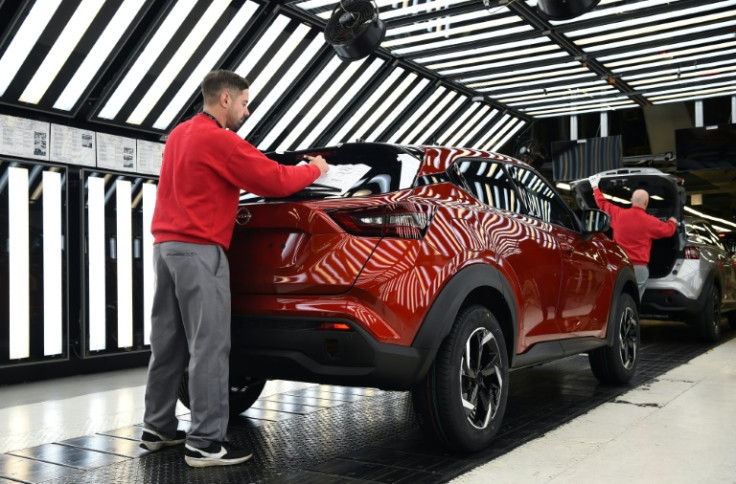UK And EU Agree Delay To Post-Brexit Electric Car Tariffs
British Prime Minister Rishi Sunak on Thursday hailed a deal with the European Union to delay post-Brexit tariffs on electric vehicle sales that were due to kick in from January.

British Prime Minister Rishi Sunak on Thursday hailed a deal with the European Union to delay post-Brexit tariffs on electric vehicle sales that were due to kick in from January.
It comes after the European Commission agreed earlier this month that it would back a one-off postponement until the end of 2026 of the planned 10-percent tariffs, in a major reversal of its previous position.
The U-turn, which came after the UK and EU automotive industries raised cost concerns, paved the way for Thursday's announcement of the agreement.
It will see so-called "rules of origin" rules and resulting tariffs phased-in more gradually.
"We have been listening to concerns of the sector throughout this process, and I know this breakthrough will come as a huge relief to the industry," Sunak said in a statement.
He added the move would "keep costs down for businesses and for people at home who want to make the switch to electric vehicles".
The need for the delay stems from disruption to the global supply chain caused by the pandemic and war in Ukraine, according to Sunak's Downing Street office.
Britain formally left the EU in January 2020 and, during a subsequent transition period, sealed the post-Brexit free-trade agreement with the bloc which came into effect in 2021.
Under that deal, tariffs were to start on January 1, 2024, on vehicles that do not have at least 45 percent UK- or EU-made content, and with batteries that are at least 50-60 percent sourced from those countries.
The industry expects the delay to imposing the requirements will save car manufacturers and consumers up to GBP4.3 billion ($5.5 billion) in additional costs, Sunak's office said.
The director-general of the European Automobile Manufacturers' Association (ACEA), Sigrid de Vries, said the agreement brought "much-needed certainty" to the electric vehicle battery supply chain.
"Instead of penalising green industries, today's decision is recognition that it takes time to build up emerging value chains," she added.
"It is also a strong signal that the EU is willing to uphold the competitiveness of its critical industries."
The chief executive of the UK's Society of Motor Manufacturers and Traders (SMMT), Mike Hawes, called the deal "a win for motorists, the economy and the environment".
"Maintaining tariff-free trade in EVs will ensure consumers retain the widest and most affordable choice of models, at a time when we need all drivers to make the switch," he added.
© Copyright AFP 2025. All rights reserved.





















